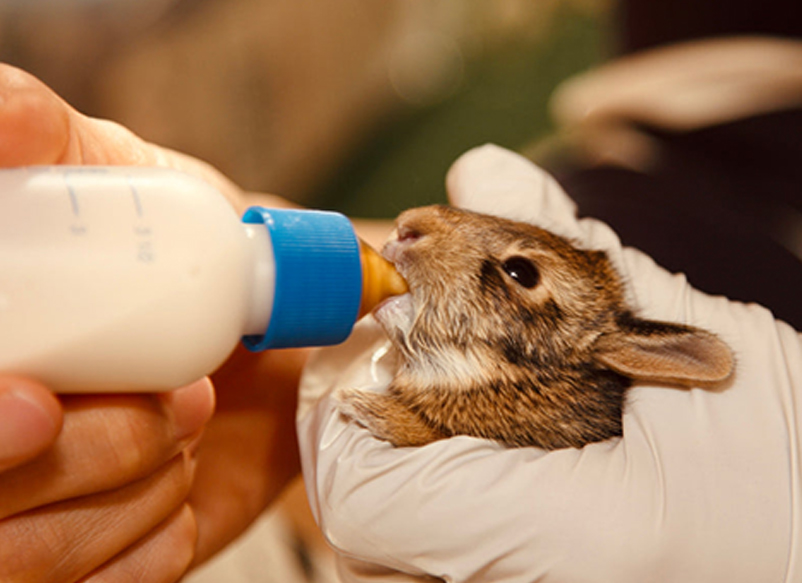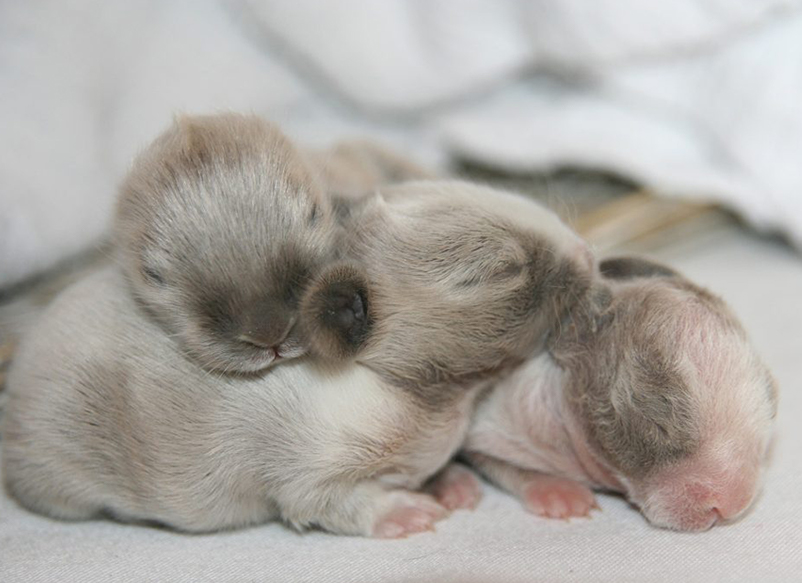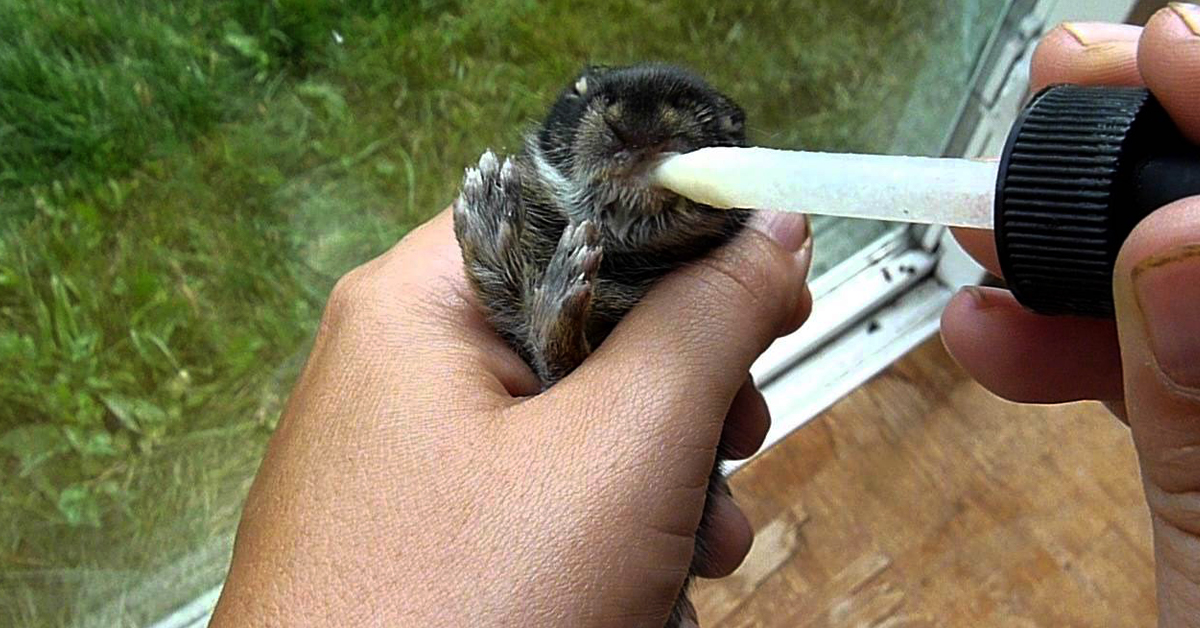One of the most important things that you must ask yourself whenever you get a baby rabbit often known as a baby rabbit or kit is; “what do I feed a newborn rabbit?” This is one of the most significant questions because the proper nutrition required is quite delicate at this stage in life. Just like any baby, a newborn rabbit needs proper care and nourishment so it can grow strong and healthy. Understanding the right kinds of food for rabbits and ensuring that your baby rabbit gets the best feed for rabbits will set them up for a long, happy life.
The Importance of Proper Nutrition for a Baby Rabbit
As we go directly into the question of what to feed a newborn rabbit, we must understand why it is right to feed it. Baby rabbits, especially during their first week, rely heavily on food for survival and growth. A poorly nourished rabbit can suffer from stunted growth, a weakened immune system, and even fatal conditions.
Newborn rabbits have specific nutritional needs, like all babies. Their digestive systems are still developing, and their bodies require easily digestible, high-energy foods to thrive. If you’re wondering, “What do I feed a newborn rabbit?” whether the baby is an orphan and you need to hand-feed it or you are caring for one with its mother, providing proper nutrition is essential for their growth and well-being.

What Do I Feed A Newborn Rabbit in the First Few Weeks?
The diet should consist of the mother rabbit’s milk during the first few weeks of life. Rabbit mothers produce highly nutritious milk that specifically fulfills the needs of their newborns. If the mother rabbit is alive or available, the baby rabbit must stay close to her to nurse regularly. Baby rabbits drink milk that is rich in nutrients, antibodies, and fats to facilitate growth and immunity from the mother rabbit.
If the mother rabbit is not available or the baby rabbit is orphaned, you will have to substitute them with an appropriate source. Let’s break down what to do if they happen to be out of reach:
1. Rabbit Milk Replacement Formula
If you’re hand-raising a baby rabbit, the best feed for rabbits in the absence of mother’s milk is a specially designed rabbit milk replacement formula. Do not try to feed your baby rabbit cow’s milk or other milk substitutes; such foods are poorly suited to a rabbit’s digestive system and can cause severe health problems.
Rabbit milk replacement formulas are formulated to be as close to a mother’s milk composition as possible. They are commonly sold at pet stores and on the internet and come in liquid or powder. Follow specific guidelines given by the manufacturer for mixing and feeding your kit.
2. How to Feed a Newborn Rabbit
Baby rabbits are very tiny, and their mouths are too small for big bottles. All rabbit milk replacement formulas come with feeding bottles or syringes that have soft tips for small mouths. But if you’re using a syringe, be slow, and give them small amounts at a time. Too much feeding or force-feeding can lead to aspiration of milk down to the lungs, causing other life-threatening conditions.
When the kits are at this stage, you should feed them every 2-3 hours in the day and every 4 hours overnight. Let the milk be at room temperature so that it does not cause diarrhea or digestive upset when fed. Over time, the frequency of feeding can be gradually reduced as the baby rabbit eats solid food and grows.

What Do I Feed A Newborn Rabbit After 3 Weeks?
Baby rabbits begin to explore solid foods around 3 weeks of age. Around this time, their digestive systems begin the process of transitioning from being reliant on milk to more fiber-rich foods. This is when you should start introducing hay, a basic component of a rabbit’s diet.
1. Hay – The Cornerstone of Rabbit Nutrition
Quality hay is the best feed for rabbits at this stage. A rabbit’s diet should be mostly hay regardless of how mature they are, and this is very essential for growing babies. Hay is full of fiber that aids in digestion hence preventing any form of gastrointestinal issues that can be dangerous for young rabbits such as diarrhea and bloat.
There are various kinds of hay, including:
- Timothy Hay: This is the type of hay most commonly recommended for rabbits at any age. It has high fiber, low protein, and is low in calcium. Therefore, it serves a good purpose for both young and adult rabbits.
- Alfalfa Hay: Its protein and calcium content will be higher than the other, which is ideal for the rabbit at the growing stage, yet it often gets switched to Timothy hay around 6 months of age to prevent obesity and kidney problems. Alfalfa hay can be fed up until around 3-4 months of age.
- Meadow Hay: A third is Meadow Hay, which is another good alternative to timothy hay, good for wild rabbits or any rabbit that needs a little bit of variety in its diet.
Ensure the rabbit has as much fresh hay as possible at all times and avoid moldy and too-old hay that can cause health problems in rabbits.
2. Fresh Vegetables and Herbs
Once the baby rabbit has begun to take up hay, you may begin incorporating fresh vegetables and herbs into their diet in small amounts. Introduce only one type of vegetable or herb at a time so you can be mindful of any negative reactions.
Good vegetables and herbs for rabbits include the following:
- Leafy green lettuce, cilantro, parsley, and dandelion greens.
- Carrot tops (don’t feed too many carrots, as they’re way too sugary).
- Kale, mint, basil, and thyme.
Avoid feeding them cabbage, iceberg lettuce, or higher sugar/starch-containing vegetables, since such vegetables are known for digestive upset.

3. Pellets
Pellets can be introduced at about 3 weeks of age, but they should never be the primary food source. Baby rabbit pellets are specially formulated with the right balance of nutrients for young rabbits. Always choose high-quality, timothy hay-based pellets, and avoid those with added seeds or dried fruits, which are high in sugars and fat. When asking “What do I feed a newborn rabbit?” remember that hay should always be the primary food source.
Pellets are a supplement, that helps to support their nutrition as they grow and transition to a more varied diet.
4. Water
You should always provide your baby rabbit with fresh clean water. Dehydration can cause serious health complications quickly, especially in young rabbits. When asking questions such as “What do I feed a newborn rabbit?”, you cannot forget the need for water. You can present water either in a small bowl or a bottle. If you are using a bottle, make sure it has an opening large enough for your baby rabbit to suck. Hydration is necessary for digestive health, and rabbits should always have access to a fresh supply of water when they eat.
Transitioning to Adult Rabbit Feed
Around 6 months, your baby rabbit will be more adapted to an adult rabbit diet. Alfalfa hay is gradually decreased and replaced with higher-fiber timothy hay. The portion of fresh vegetables and grass also increases. Monitoring their weight, energy, and general health during this transitional period is essential. At this stage, your baby rabbit will require less protein and calcium, and by feeding more fiber-rich foods, you’ll ensure successful digestion and prevent obesity. So, if you’re still asking “What do I feed a newborn rabbit?” at this stage, it’s important to gradually shift towards a more adult diet focused on fiber.
What Not to Feed Your Newborn Rabbit
There are certain foods you should avoid when feeding a newborn rabbit:
- High-Sugar Foods: Fruits and sugary vegetables should be shunned. These lead to obesity and gastrointestinal problems.
- Cow’s milk: Never allow a baby rabbit to nurse on cow’s milk. This can cause serious digestive upset and is also nutritionally inappropriate for rabbits.
- Iceberg Lettuce: This contains very few nutrients and can cause problems like diarrhea.
- Processed Foods: Never give your baby rabbit any human food, such as chocolate, bread, or processed snacks. These are toxic for rabbits.

Conclusion: Providing the Best Feed for Your Baby Rabbit
A question is as fundamental to the health and well-being of your new pet as “What do I feed a newborn rabbit?” exists. Nursing baby rabbits from their mothers is ideal. However, if you are hand-raising a baby rabbit, you should rely on a proper milk replacement formula that will give them sufficient nutrition. Thereafter, introduce hay, fresh vegetables, and quality rabbit pellets at 3 weeks of age.
Feed them with fresh hay throughout their early months since fresh hay is the best feed for rabbits at any age. It is key to achieving proper digestion and health in your baby rabbit.
Taking the time to feed your newborn rabbits correctly will ensure they develop into strong, healthy adult rabbits. With proper care, your baby rabbit will live for years of happy hops, cuddles, and hay.

